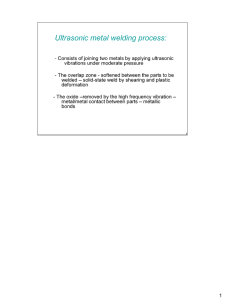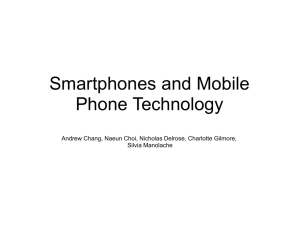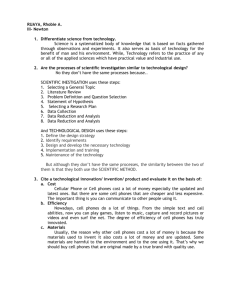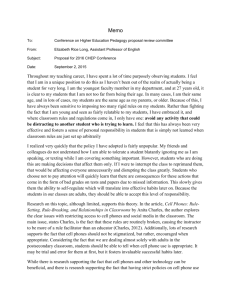Cell Phones
advertisement
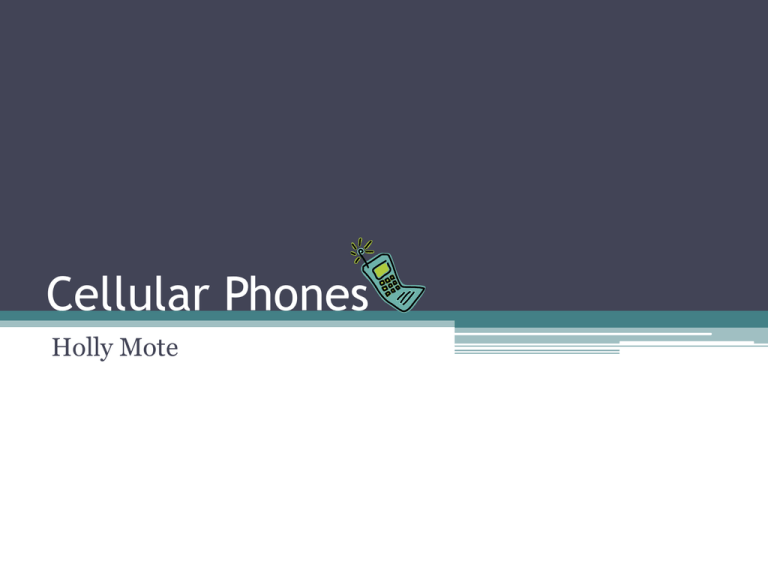
Cellular Phones Holly Mote Cell phones present a special challenge for businesspeople today. Gartner Group estimates that 1 billion cell phones will be sold globally in 2009. Alexander Graham Bell couldn’t have imagined the strong emotions that would become attached to the mobile version of his communication invention. Nearly everyone has a pet peeve about cell phones. A study by the Pew Internet and American Life Project confirms that near nine in 10 people say they encounter people using cell phones in annoying ways. The worst offense is having loud conversations in public places. No one questions the device’s ability to provide individuals with complete freedom to connect and communicate with others from virtually any spot on the globe near a cell tower. It’s the behaviors exhibited by those users that stimulate the ire of the masses, and this irritation shows no signs of slowing down anytime soon. This same study found that more than two-thirds of users say their cell phone would be hard to give up. Soft Skills at Work: Technology for Career Success (Page 47) In All Situations • Use Caller ID to determine whether you should take the call. If you’re with a group of friends, excuse yourself first then step away to answer the phone so they won’t have to listen in to your conversation or attempt to talk over you. • Don’t talk loud or shout into your phone. • Avoid using profanity in public, no matter how softly you speak. • Keep calls brief when you have company – you don’t want to leave your friends hanging. • Practice silencing your phone without looking in case you forget to turn it off. • If possible, keep 10 feet away from other people when using a phone. • Select a non-offensive ringtone. Anything else marks you as juvenile. • Consider removing your Bluetooth earpiece when you are not planning to use it. You are plenty cool without it! • If you are uncertain about whether to mute or turn off your phone, err on the side of courtesy by turning it off. In the Office: • Set your cell phone to silent or vibrate mode during a meeting. • If you are expecting an important call that may come during a meeting, inform participants at the start that you may need to step out to take a call. • If you are the one making a presentation, don’t stop to answer your phone if it does ring. In Restaurants: • Turn off your cell phone or set to vibrate only. If you are expecting an important call, inform your dining partners ahead of time. If the call comes, excuse yourself, leave the table and go outside to answer your call. Make it as brief as possible. • With a date or business contact, there are few calls that are more important that the people you are with. If your phone does vibrate, you’ll impress them by silencing it, ignoring it, or looking at the caller ID and stating you will call the person back later. In Transit: • If not prohibited by the transit authority or carrier, speak with a normal volume level. Imagine having a conversation with the person next to you; there is no need to shout. • Observe the laws of your state when driving. The safest choice is to not use the phone at all. At Social Events, Theaters, or Places of Worship: • Turn off your cell phone or set to vibrate only if you are expecting an important call, such as from the babysitter. • If a call comes through that you must take, excuse yourself and go to the lobby to take the call. References Amer, Beverly. Soft Skills At Work: Technology for Career Success. Course Technology, Cengage Learning, 2009.
